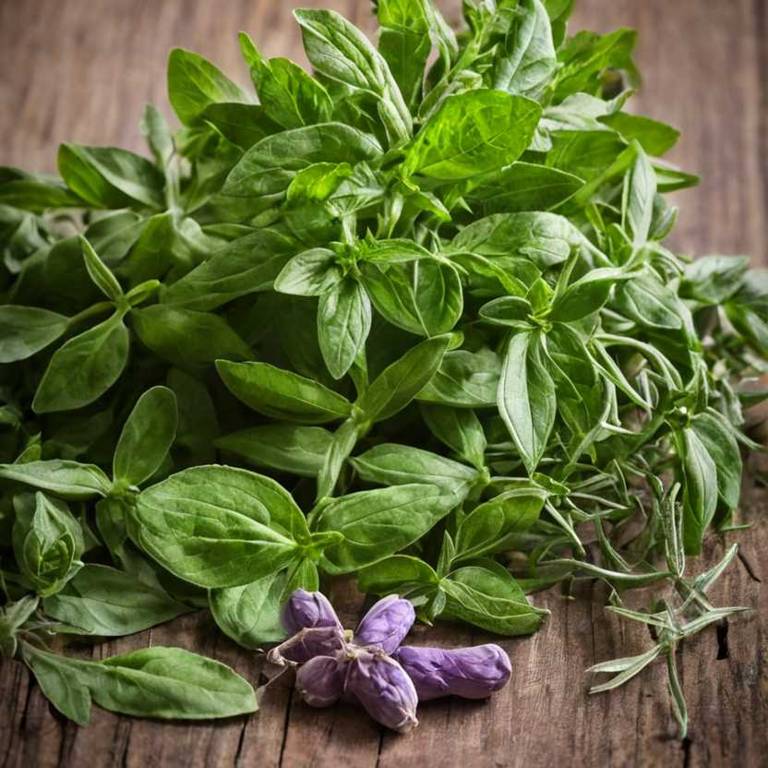Selfheal (Prunella vulgaris)
Selfheal (Prunella vulgaris) is a member of the Lamiaceae family, native to Europe, Asia, and North Africa. Traditionally, its leaves, flowers, and stems have been used for decoctions, infusions, and poultices.
This herb is particularly valued for its diuretic, anti-inflammatory, and astringent actions, and has a long history of use in european herbal medicine, mediterranean herbal traditions, and traditional chinese medicine.

Quick Facts / Key Information
| Common Name | Selfheal |
|---|---|
| Scientific Name | Prunella vulgaris |
| Plant Family | Lamiaceae |
| Genus | Prunella |
| Species | vulgaris |
| Native Range | Europe, Asia, North Africa |
| Plant Parts Used | Leaves, Flowers, Stems |
| Primary Medicinal Actions | Diuretic, Anti-Inflammatory, Astringent |
| Primary Traditional Systems | European Herbal Medicine, Mediterranean Herbal Traditions, Traditional Chinese Medicine |
| Historical Preparation Methods | Decoction, Infusion, Poultice |
Botanical Identity
- Scientific Name
- Prunella vulgaris
- Common Name
- Selfheal
- Synonyms / Alternative Names
- Woundwort, Common Selfheal, Woolly Betony
- Plant Family
- Lamiaceae
- Genus
- Prunella
Botanical Description
- Growth Habit
- Perennial herbaceous plant.
- Height
- It typically grows to a height of 20 to 60 centimeters.
- Leaves
- Ovate leaves with smooth margins, upper surface dull green, lower surface pale green, bearing prominent stomatal bands along the midrib.
- Flowers
- Inflorescence of clustered spikes bearing blue-violet flowers with five petals and two lips, actinomorphic symmetry, and a prominent central stamen.
- Stems
- Erect, unbranched, herbaceous stems with smooth, quadrangular cross-section and opposite, sessile leaves.
Traditional Uses / Historical Use
Traditional Systems
- European Herbal Medicine
Historical Preparation Methods
- Decoction
- Infusion
- Poultice
- Powder
Medicinal Actions
- Diuretic
- In herbal texts, considered a soothing diuretic, in cleansing-oriented uses.
- Anti-inflammatory
- In herbal literature, noted as a mild anti-inflammatory, in topical or internal use contexts.
- Astringent
- Commonly referenced as a cooling astringent, in drying-focused uses.
- Bitter
- As described in traditional systems, a warming bitter, in taste-driven classifications.
Active Compounds
- Flavonoid
- A chemical class commonly identified in plant tissues, especially flowers and leaves.
- Tannin
- High-molecular-weight phenolic compounds found in many plant species.
- Phenolic Acid
- Naturally occurring phenolic compounds present in many plant species.
- Coumarin
- A group of secondary metabolites present in seeds, roots, and leaves.
Modern Research Overview
Contemporary research on this plant includes areas such as chemical analysis, laboratory-based studies, and observational research. Detailed summaries of published findings are not included at this stage and will be added during future content updates.
Safety & Contraindications
- General Precautions
- General precautions have been noted regarding the use of this herb.
- Contraindications
- There is insufficient evidence to determine specific contraindications related to this herb.
- Allergies
- Allergic reactions associated with this herb have not been well documented.
- Drug Interactions
- Available information regarding interactions with pharmaceutical drugs is limited.
- Toxicity
- Toxic effects associated with this herb have not been well documented.
- Pregnancy & Breastfeeding
- Use during pregnancy or breastfeeding has not been clearly established in available sources.
Preparation & Usage Methods
- Infusion
- Infusions are commonly prepared using hot water to release aromatic and soluble components.
- Decoction
- Decoctions are made by heating plant material in water for an extended time.
- Poultice
- Poultices involve external application of prepared plant matter.
- Powder
- Powdered preparations use finely milled plant parts.
- Tincture
- Plant material is macerated in alcohol to create a concentrated liquid extract.
Growing, Harvesting & Storage
Growing / Cultivation
- Soil
- Prefers loamy soil with moderately well-drained conditions. Typically grows best in organically rich soils.
- Sunlight
- Thrives in partial shade. Tolerates full sun to partial shade.
- Watering
- Prefers well-balanced moisture levels. Tolerates variable moisture levels.
Medical Disclaimer
The information provided on this page is for educational and informational purposes only. It is not intended to diagnose, treat, cure, or prevent any medical condition. Always consult a qualified healthcare professional before using any herb for medicinal purposes.